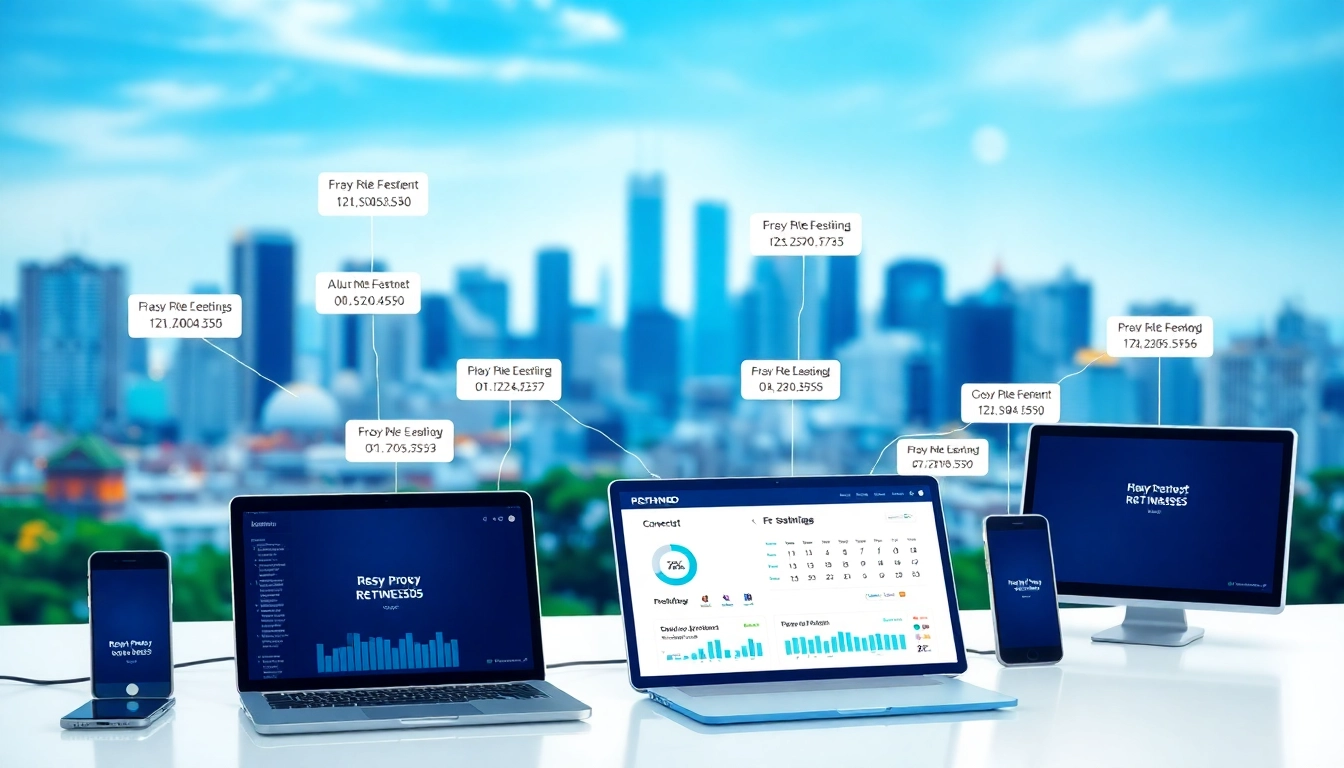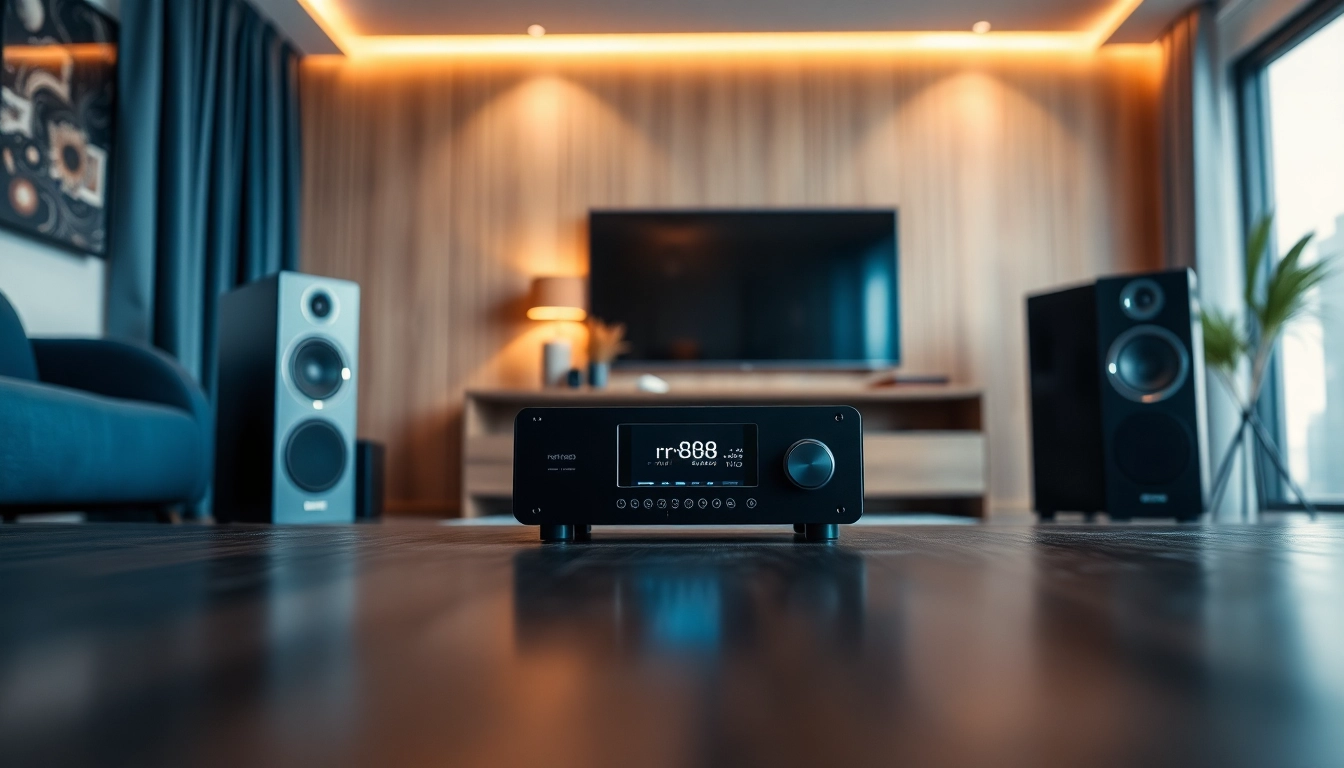What is a Residential Proxy?
Definition and Functionality
A residential proxy is a type of proxy server that routes internet traffic through devices with real IP addresses assigned by Internet Service Providers (ISPs). This means that unlike datacenter proxies, which use IP addresses from a range of servers, residential proxies provide IP addresses that belong to real homes. This functionality grants users significant anonymity and an enhanced internet browsing experience, allowing them to appear as if they are accessing the internet from a residential location rather than a data center.
How Residential Proxies Work
When an individual or a company uses a residential proxy, their requests to websites are sent through an intermediary server that belongs to a residential user. Essentially, the proxy acts as a middleman between the user’s computer and the internet. The main process involves:
- The user configures their device to connect to the residential proxy.
- The residential proxy receives the user’s internet requests and forwards them to the target website using a residential IP address.
- When the website responds, the residential proxy retrieves the data and forwards it back to the user.
This method enables users to access content and websites that may be geo-restricted while maintaining a higher level of anonymity.
Key Features of Residential Proxies
Residential proxies come with several key features that make them an attractive option for both individual users and businesses alike:
- Genuine IP Addresses: As mentioned, residential proxies operate using real IP addresses which makes them less likely to be blocked by websites.
- Geo-Targeting: Users can select IP addresses from specific countries or regions, allowing access to geo-restricted content.
- Rotating IPs: Many residential proxy services offer IP rotation, where the IP address is changed automatically at set intervals, minimizing the risk of detection.
- High Anonymity: Since the traffic appears to originate from everyday users, it adds a layer of anonymity that is crucial for privacy-sensitive tasks.
Benefits of Using Residential Proxies
Anonymity and Security
One of the most significant benefits of using residential proxies is the enhanced anonymity they provide. By masking the user’s original IP address, they help protect personal information from being tracked by websites or malicious entities. This is particularly valuable for activities that involve sensitive data or interactions, such as:
- Social media management
- Market research
- Data scraping
By employing a residential proxy, individuals and businesses can significantly reduce the chance of being exposed to data harvesting by third parties.
Access to Geo-Restricted Content
Residential proxies are instrumental in bypassing geo-restrictions on content. For instance, streaming services often restrict access to specific content based on the viewer’s location. Here, a residential proxy allows users to appear as if they are accessing the service from a different location, thus enabling access to a wider variety of content without restrictions.
Improved Web Scraping Capabilities
For businesses that rely on data scraping for market analysis, residential proxies provide a more effective solution than standard datacenter proxies. Because they use genuine IPs, the risk of being blocked during the scraping process is significantly lower. This allows companies to collect critical data without facing detection or throttling, ensuring a smoother workflow and more reliable data acquisition.
Choosing the Right Residential Proxy Service
Key Factors to Consider
When selecting a residential proxy service, several key factors come into play:
- IP Pool Size: A larger IP pool can enhance anonymity and reduce the chances of being blocked.
- Geographic Coverage: Depending on your needs, you may require proxies from specific regions or countries.
- Speed and Uptime: Ensure that the service provides reliable speeds, especially if you’re scraping large amounts of data.
- Customer Support: Access to quick and helpful customer service can help resolve any issues that arise during use.
Comparing Pricing and Plans
Pricing can vary widely among residential proxy providers. Generally, these services charge based on the amount of bandwidth used or the number of IPs accessed. Companies should evaluate their specific requirements and compare offers from different providers to find the best deal. Consider not only the cost but also the features provided, such as rotating IPs and geographical locations. For instance, some providers may offer packages starting as low as $2.45 per GB, but it’s important to ensure that the quality of service justifies the price.
Top Providers in the Market
There are numerous residential proxy providers available, each with its own strengths. Some notable mentions include:
- Bright Data: Known for its extensive IP pool and trusted by large enterprises.
- Webshare: Offers competitive pricing with excellent uptime ratings.
- Oxylabs: Features robust customer support and a diverse range of IPs.
- DataImpulse: Popular for affordable plans and user-friendly interface.
Common Use Cases for Residential Proxies
Social Media Management
Social media managers often rely on residential proxies to manage multiple accounts without being flagged for suspicious activity. By operating from different IP addresses, they can post, engage, and analyze without risking account bans. This is particularly important for agencies managing clients’ accounts or for influencers operating across several platforms.
Data Collection and Market Research
Residential proxies play a vital role in acquiring competitive intelligence through market research. Businesses can collect data from competitors’ websites or customer reviews without facing IP bans or legal constraints. This ability to scrape data reliably translates to valuable insights for strategic planning.
Ad Verification and Brand Protection
For e-commerce and advertising agencies, ensuring that digital ads appear correctly and that brand integrity is maintained is paramount. Residential proxies allow these companies to perform ad verification checks without geographic restrictions, ensuring that their campaigns present the right content to the intended audience and that no fraudulent practices undermine their efforts.
Best Practices for Implementing Residential Proxies
Setting Up Your Proxy Connection
The setup process for residential proxies can be relatively straightforward. Here are the typical steps to follow:
- Select a residential proxy provider and create an account.
- Choose the type of proxy you need, whether static or rotating.
- Follow the provider’s setup instructions to configure your browser or application to use the proxy.
- Test the connection by visiting a website to confirm that your IP address appears as the proxy’s IP.
Managing Proxy Rotations
To maximize the effectiveness of proxy use, especially when scraping data or managing multiple accounts, users should consider implementing automatic IP rotation. This technique not only adds a layer of security but is also critical in avoiding IP bans during prolonged sessions. Many proxy services offer APIs or dashboard tools to automate this process effectively.
Monitoring Performance Metrics
Performance monitoring is essential to ensure that the residential proxy setup meets the desired objectives. Key metrics to track include:
- Connection speed: Ensure that data transfer speeds are sufficient for your needs, especially for large data scrapes.
- Uptime: Reliable uptime figures should be a priority; frequent downtimes can hinder operations.
- Success rates for requests: Monitor how often requests were successful versus when they resulted in errors or bans.




